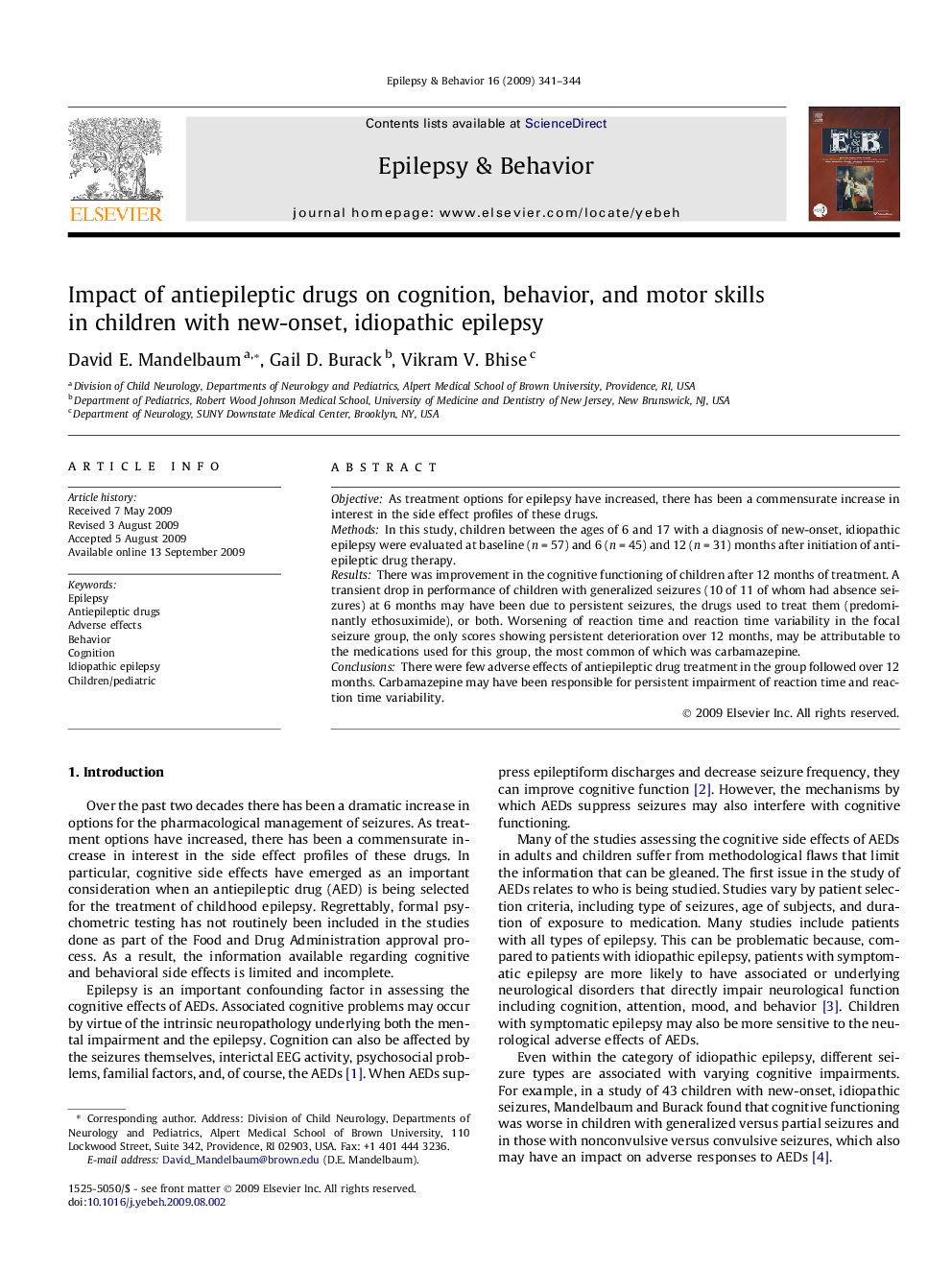| کد مقاله | کد نشریه | سال انتشار | مقاله انگلیسی | نسخه تمام متن |
|---|---|---|---|---|
| 3050047 | 1185943 | 2009 | 4 صفحه PDF | دانلود رایگان |

ObjectiveAs treatment options for epilepsy have increased, there has been a commensurate increase in interest in the side effect profiles of these drugs.MethodsIn this study, children between the ages of 6 and 17 with a diagnosis of new-onset, idiopathic epilepsy were evaluated at baseline (n = 57) and 6 (n = 45) and 12 (n = 31) months after initiation of antiepileptic drug therapy.ResultsThere was improvement in the cognitive functioning of children after 12 months of treatment. A transient drop in performance of children with generalized seizures (10 of 11 of whom had absence seizures) at 6 months may have been due to persistent seizures, the drugs used to treat them (predominantly ethosuximide), or both. Worsening of reaction time and reaction time variability in the focal seizure group, the only scores showing persistent deterioration over 12 months, may be attributable to the medications used for this group, the most common of which was carbamazepine.ConclusionsThere were few adverse effects of antiepileptic drug treatment in the group followed over 12 months. Carbamazepine may have been responsible for persistent impairment of reaction time and reaction time variability.
Journal: Epilepsy & Behavior - Volume 16, Issue 2, October 2009, Pages 341–344